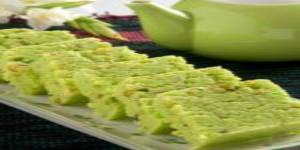
Scope
Most types of Halwa are relatively dense confections sweetened with sugar or jaggery and use large quantities of ghee in their making. The texture may vary, but semolina based Halwa, which are the most popular, are gelatinous and translucent. In North India, kada prasad offered in the gurdwara of Sikh temples is a wheat based, ghee and sugar laden halwa.
India has many types of halwa sweet confectionery, region wise categorized. They include the widely popular suji (semolina) halwa. Other region specific halwa include wheat halwa, moong dal ka halwa, gajar (carrot) ka halwa, Dudhi (bottle gourd) Halwa, Kesari Bath (saffron colored semolina), etc.
Barfi, burfi 40 On the other hand, it is a dense milk-based sweet. A few of the famous varieties of barfi include besan barfi (made with gram flour), kaju barfi (made with cashews), pista barfi (made with ground pistachios), and sing barfi (made with peanuts). The main ingredients of plain barfis include condensed/thickened milk and sugar. The ingredients are cooked in a vessel until the mixture solidifies.
The flavour of a barfi is often enhanced with fruits (such as mango or coconut) or nuts (such as cashew, pistachio, or peanut) and spices (such as cardamom). Burfis are typically cut into square, diamond, or round shapes. The sweet is easily adapted for casual occasions to the most formal event. Different types of barfi vary in their colour and texture.
The confection is served all year round, but especially consumed during the holiday seasons, wedding ceremonies, and religious festivals. Barfi is often served during Eid and also Diwali.
Fundamental Concepts and Principles
Following ingredients are required for making Copra Burfi :
- Copra – 13 palam
- Fried poppy seeds/khus khus – 3 palam
- Cardamom powder – ½ palam
- Milk burfi – 3 palam
- Brown sugar – 29 palam
Method
- Remove the black skin of the copra and grate it. Grind fried khus khus, cardamom to a dry powder. Mix milk burfi, sugar in a coated vessel and add the dry powdered khus khus and grated coconut and knead well.
- Take lemon sized balls and pat to a square shape and keep it in another tray. Close the tray with another tray and keep it on fire. Sprinkle water on top of the tray and when it boils well, assume that it is cooked and set aside from the fire.
Hindu Compliance Body
The Hindu compliance body was established under the executive order of The Supreme Pontiff of Hinduism, dated August 14, 2020, order number 10010, under the title Reviving the Hindu Compliance System and Body
to create, promote, spread and teach the standard procedures for all products and services that are in compliance Hindu Shastras.
Copyright
HCS has the copyright of all its publications. No part of these publications may be reproduced in any form without the prior permission in writing to HCS. This does not preclude the free use, in the course of implementing standard, of necessary details mentioned above. Enquiries related to copyrights to be addressed to KAILASA.
